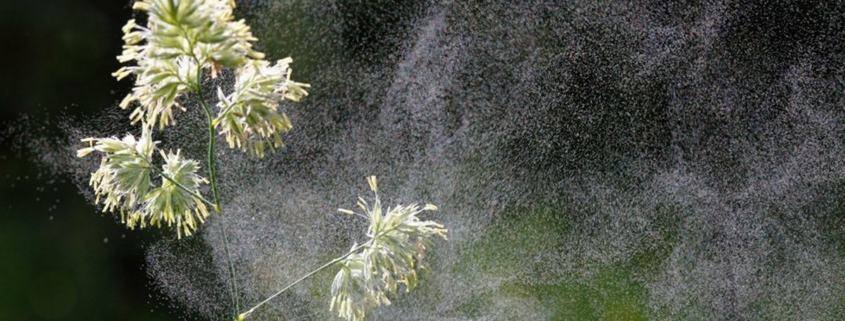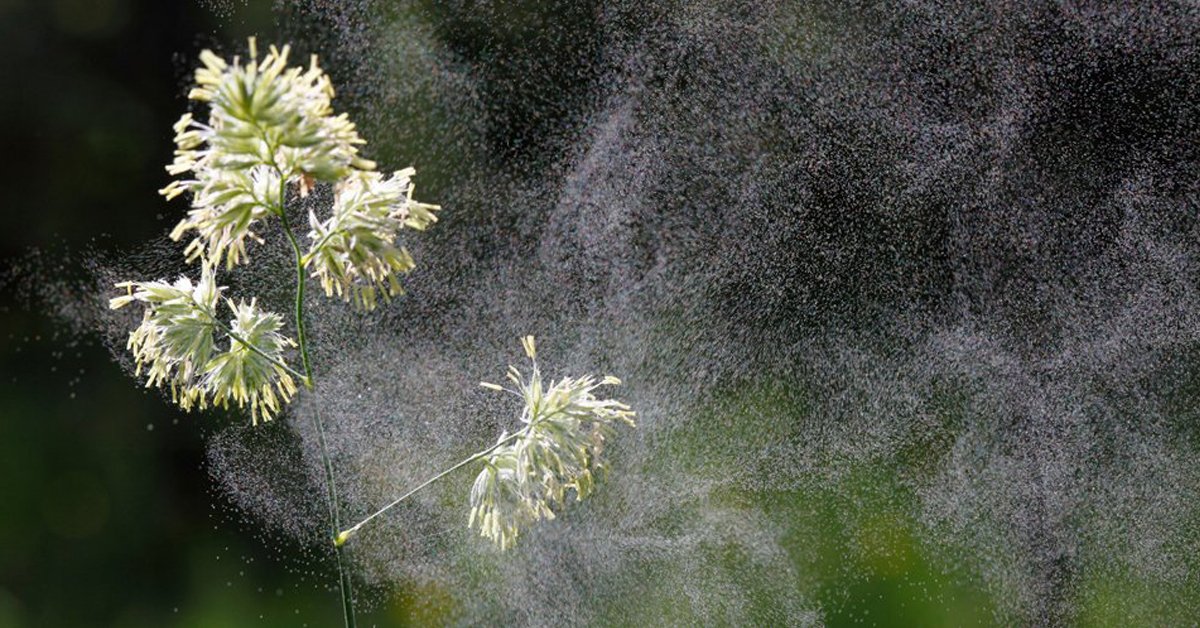Allergy Relief: Natural Antihistamine Essential Oils
Allergies can be a frustrating and sometimes debilitating condition. They affect millions of people worldwide. The symptoms can range from mild discomfort to severe reactions, whether it is seasonal hay fever, pet dander, mold, or food allergies. While over-the-counter medications are commonly used to manage these symptoms, many people are turning to natural alternatives to find relief, such as essential oils. This article will delve into the world of natural antihistamine essential oils, exploring their benefits, scientific evidence, and mechanisms of action.
Table of Contents
-
Understanding Allergies and Histamines
-
The Power of Natural Alternatives
-
Top Natural Antihistamine Essential Oils
-
How to Use Essential Oils for Allergy Relief
-
Safety Considerations
-
Conclusion
Understanding Allergies and Histamines
The Mechanics of Allergies
Allergies occur when the immune system overreacts to substances that are typically harmless, such as pollen, dust mites, or certain foods. These substances, known as allergens, trigger the release of histamines in the body, leading to symptoms such as sneezing, itching, runny nose, and watery eyes.
The Role of Histamines in Allergic Reactions
Histamines are chemicals produced by the immune system that play a key role in allergic reactions. When an allergen enters the body, it triggers IgE antibodies on mast cells to release histamines. This release leads to inflammation and other common allergy symptoms. Antihistamines are substances that block or reduce the effects of histamines, helping to alleviate allergy symptoms.
The Power of Natural Alternatives
The Limitations of Conventional Antihistamines
While conventional antihistamines are effective for many people, they can come with a range of side effects, including drowsiness, dry mouth, dizziness, and even potential long-term health risks when used frequently. Additionally, some individuals may find that these medications become less effective over time, leading them to seek out alternative solutions.
The Appeal of Essential Oils
Essential oils are highly concentrated plant extracts that have been used for centuries in various forms of traditional medicine. Their natural origins, coupled with their potential therapeutic benefits, make them an excellent option for those looking to manage their allergy symptoms without relying on synthetic drugs. This is where essential oils come into play. Certain essential oils have been found to exhibit antihistamine properties, offering a natural way to combat allergic reactions.
Top Natural Antihistamine Essential Oils
Lavender Essential Oil: Nature’s Calming Antihistamine
Lavender oil is one of the most versatile and widely used essential oils, known for its calming and soothing properties. It is also a potent natural antihistamine, making it an excellent choice for allergy relief.
Mechanism of Action: Lavender oil inhibits the release of histamines and reduces inflammation. A study published in the journal Life Sciences found that lavender oil has a significant anti-inflammatory effect, which can help alleviate the symptoms of allergic reactions. Additionally, its calming properties can help reduce stress and anxiety, which are often exacerbated by allergies.
Peppermint Essential Oil: The Breath of Fresh Air
Peppermint oil is another powerful essential oil that can provide relief from allergy symptoms. Its cooling and refreshing properties make it particularly effective for respiratory issues associated with allergies, such as congestion and sinusitis.
Mechanism of Action: Peppermint oil contains menthol, which acts as a natural decongestant by relaxing the muscles in the nasal passages, making it easier to breathe. Research published in the European Journal of Medical Research suggests that peppermint oil may also inhibit the release of histamines, thereby reducing allergic reactions.
Eucalyptus Essential Oil: The Respiratory Rescuer
Eucalyptus oil is well-known for its ability to clear the airways and improve respiratory function, making it a favored choice for those suffering from allergies, asthma, and colds.
Mechanism of Action: Eucalyptus oil contains eucalyptol, which reduces inflammation in the airways, helping to alleviate symptoms such as coughing and wheezing. According to a study in the Journal of Ethnopharmacology, eucalyptol can significantly improve respiratory function. Additionally, its antimicrobial properties can help prevent secondary infections, which are common in people with respiratory allergies.
Tea Tree Essential Oil: The Skin Soother
Tea tree oil is renowned for its antiseptic and anti-inflammatory properties, making it a useful essential oil for treating a variety of skin conditions, including allergic dermatitis.
Mechanism of Action: Tea tree oil contains terpinen-4-ol, a compound that inhibits histamine release and reduces inflammation. A study published in the journal of Inflammation found that tea tree oil can significantly reduce the severity of skin inflammation caused by histamines. This makes it particularly beneficial for those who suffer from skin allergies or allergic reactions to insect bites.
Roman Chamomile Essential Oil: The Gentle Giant
Roman chamomile oil is often used for its calming effects, but it also has potent anti-inflammatory and antihistamine properties, making it a great choice for allergy relief.
Mechanism of Action: Roman chamomile oil contains flavonoids, which inhibit the release of histamines and reduce inflammation. A study published in the Journal of Agricultural and Food Chemistry demonstrated the ability of chamomile extracts to reduce the production of histamines in mast cells, thereby helping to alleviate allergic symptoms.
Lemon Essential Oil: The Zesty Defender
Lemon oil is a natural detoxifier and immune system booster, making it an effective essential oil for managing allergy symptoms.
Mechanism of Action: Lemon oil stimulates the production of white blood cells, which are crucial for immune function. It also has anti-inflammatory properties, which can help reduce the severity of allergic reactions. Additionally, lemon oil’s uplifting and energizing scent can help improve mood and combat the fatigue that often accompanies allergies.
How to Use Essential Oils for Allergy Relief
Aromatherapy
Aromatherapy is one of the most common ways to use essential oils for allergy relief. By inhaling the vapor from these oils, you can directly target the respiratory system, helping to clear airways and reduce congestion. Try adding 5-7 drops of your chosen oil to a diffuser, or create a personal inhaler by adding a few drops to a cotton ball and inhaling deeply.
Topical Application
For skin-related allergies, topical application of essential oils can provide targeted relief. Always dilute essential oils with a carrier oil, such as coconut or jojoba oil, using a ratio of 2-3 drops of essential oil per teaspoon of carrier oil. Apply this mixture to the chest, neck, or affected areas to reduce inflammation and soothe irritated skin.
Internal Use
Some essential oils can be taken internally, but this should only be done under the guidance of a healthcare professional, as certain oils can be toxic if ingested improperly. If recommended by a professional, you might add a drop of lemon oil to a glass of water or take specially prepared essential oil capsules.
Safety Considerations
While essential oils can be highly effective for allergy relief, it’s crucial to use them safely. Always perform a patch test before applying a new essential oil to your skin to check for any adverse reactions. Apply a small amount of diluted oil to the inside of your wrist and wait 24 hours to ensure no irritation occurs. Some essential oils should not be used by pregnant women, children, or individuals with certain medical conditions, so it’s important to consult with a healthcare provider before starting any new essential oil regimen. Remember, natural doesn’t always mean risk-free – respect the potency of these powerful plant extracts.
Conclusion
As we’ve explored, nature has provided us with powerful tools to combat allergies. Essential oils like lavender, peppermint, and eucalyptus offer a natural, holistic approach to managing allergy symptoms without the side effects often associated with conventional medications. By taking advantage of these natural antihistamines, you can breathe easier, soothe irritated skin, and reclaim your comfort from allergy disruptions.
Remember that everyone’s body reacts differently, so it may take some experimentation to find the perfect essential oil or blend that works for you. Start with small amounts, be consistent, and pay attention to how your body responds. With patience and persistence, you might just find that these natural remedies become your go-to allies in the fight against allergies.
Are you ready to explore the world of natural antihistamine essential oils? Why not start by introducing one of these oils into your daily routine? Your body – and the planet – will thank you for choosing a natural approach to allergy relief. Breathe deep, live naturally, and embrace the power of plants in your journey to wellness.
























Leave a Reply
Want to join the discussion?Feel free to contribute!